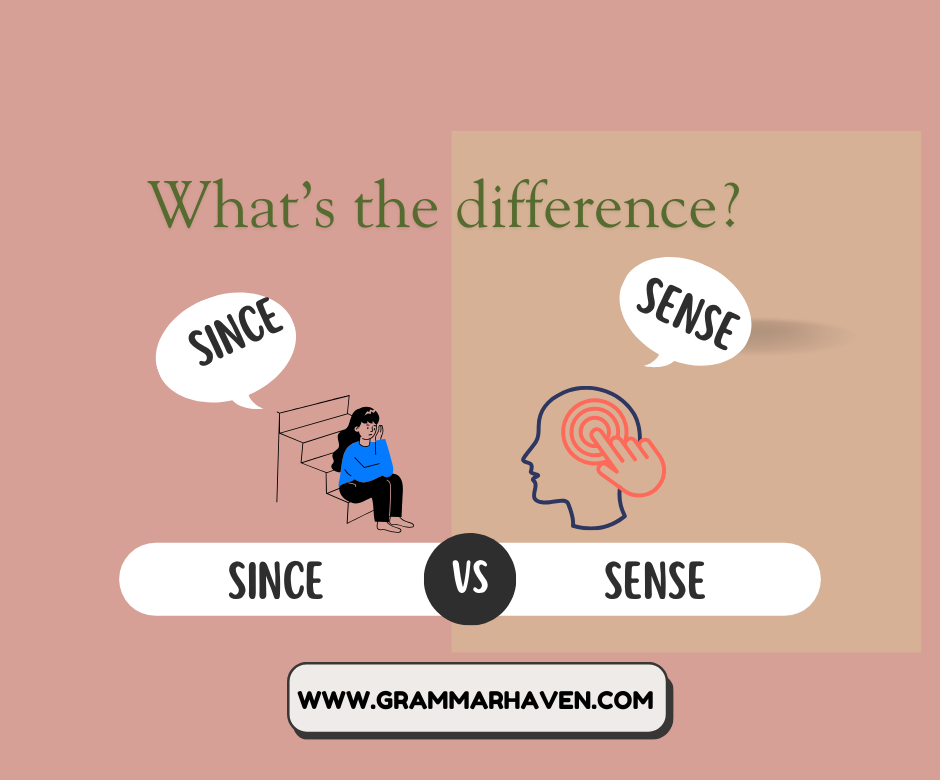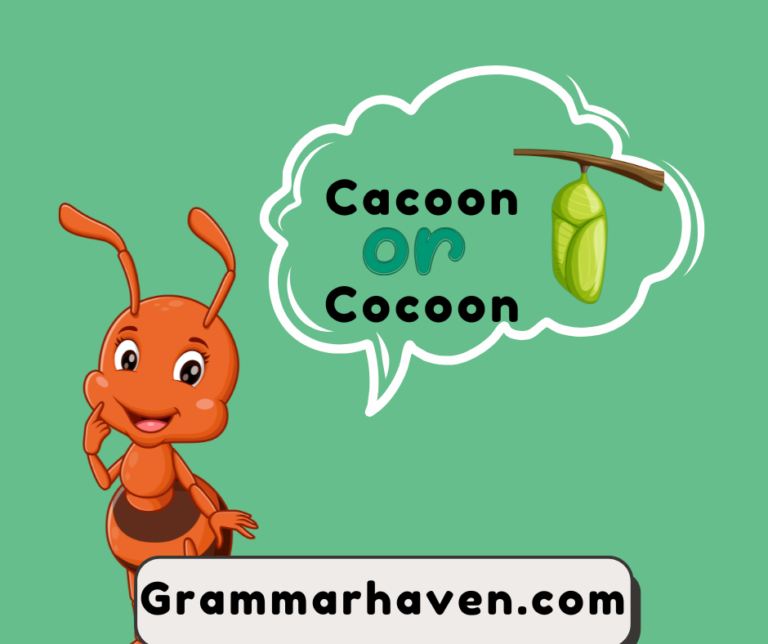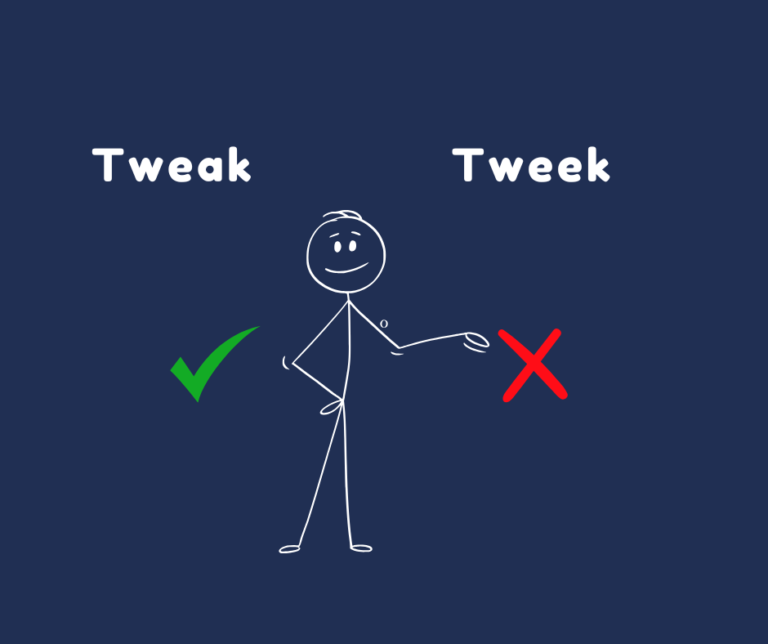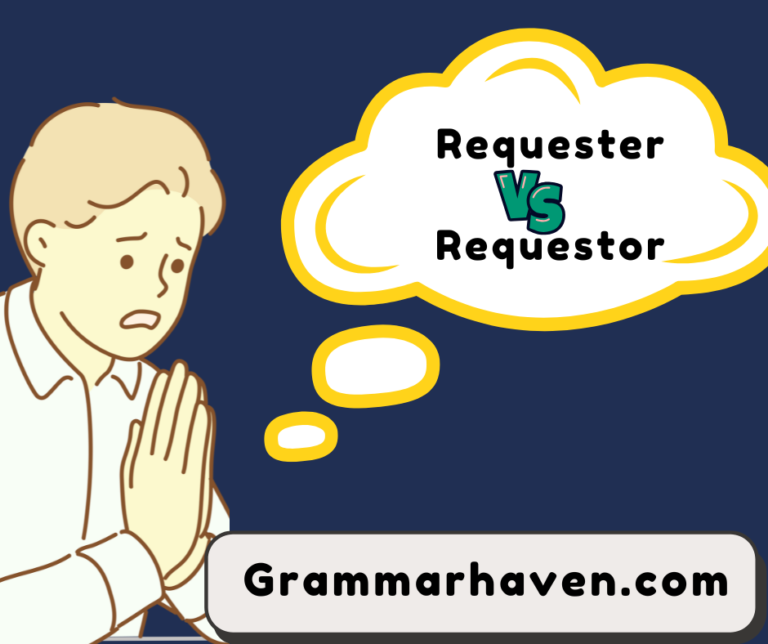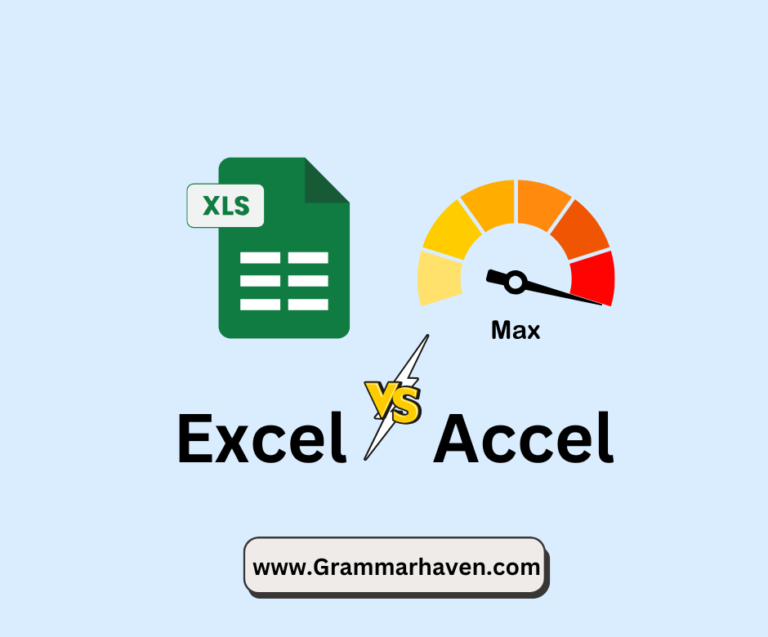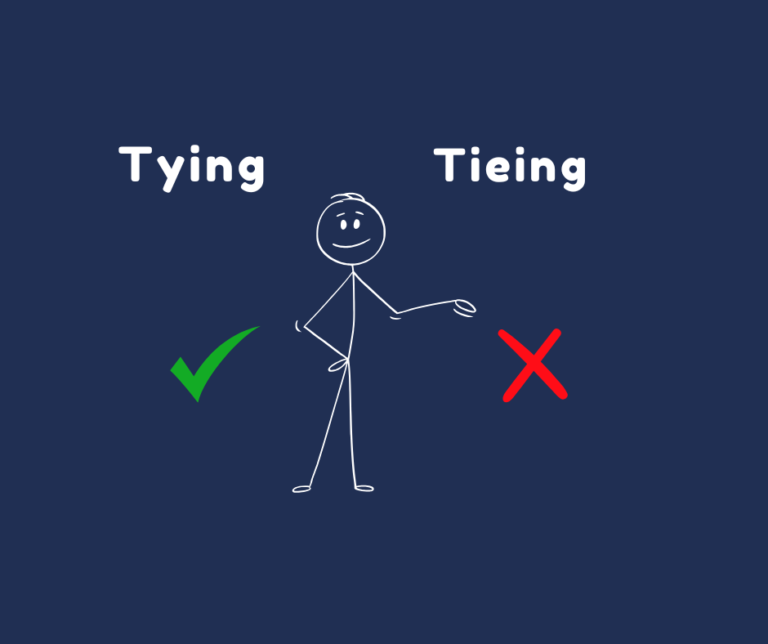Since vs Sense: What’s the Difference?
“since vs sense” are considered to be homophones as these words sound alike when spoken, but they serve completely different purposes in writing. Since is usually used when we deal with describing something that is specifically connected to a happening or an event in the past. While sense is a noun and is used to describe how we experience or interpret our surroundings and specific things around us. Getting them right can make your writing clearer and more professional. This guide will help you understand the differences between “since vs sense” and show you exactly when to use each one with many useful examples.
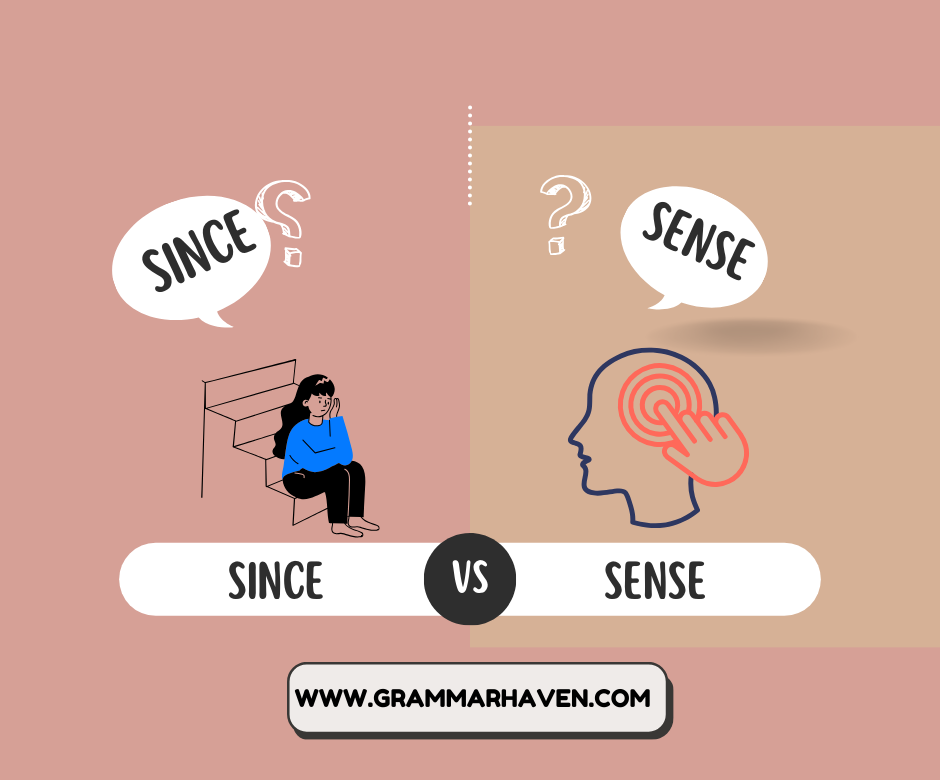
Defining “Since” and “Sense”
Since Meaning and Definition :
The word “since” comes under preposition and conjunction which is used to denote a point of time or duration sometimes. This word is usually used when we deal with describing something that is specifically connected to a happening or an event in the past. while it is also used for explaining or introducing a reason for something that has happened. “Since it was late, we saw no reason to stay.”
“Since” can be used as an adverb, preposition and conjunction in sentences. The way it is used changes its meaning. “Since” works in several ways in English:
As a conjunction:
- As a conjunction since points to time, showing a starting point in the past until now. For example: “I have been waiting here since 9 AM.”
- It shows a reason, similar to “because.” For example: “Since you’re already here, let’s start the meeting.”
- “Since it was late, we saw the chief wrapping up the meeting.”
As a preposition:
- As a preposition since marks time from a specific point in the past. For example: “I’ve known her since elementary school.”
As an adverb:
- As an adverb “since” refers to a time from the past until now. For example: “He left three days ago and hasn’t called since.”
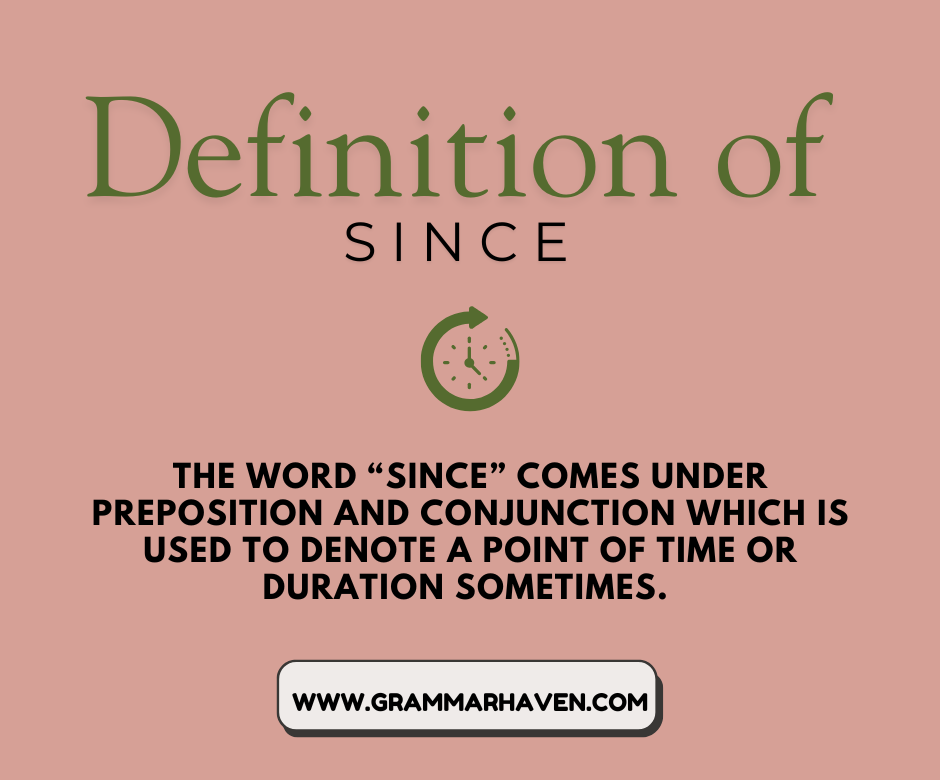
Source : Merriam-Webster.
Sense Definition and Meaning :
“Sense” is a noun. The word “sense” is a noun that refers to understanding, perception, or intellectual intuition. It is used to describe how we experience or interpret our surroundings and specific things around us. This includes our five senses e.g. smell, touch, sight, taste, and hearing. Additionally, “sense” can function as a verb, meaning to perceive or detect something through the senses. “Sense” works differently:
As a noun:
- As a noun “sense” refers to our five methods of perception: sight, smell, hearing, taste, and touch. For example: “Humans have five senses.”
- It means understanding or good judgment. For example: “She has a good sense of direction.”
- It indicates meaning or logic. For example: “This instruction manual makes no sense.”
As a verb:
- As a verb” sense” means to detect or become aware of something. For example: “The dog could sense danger before anyone else.”
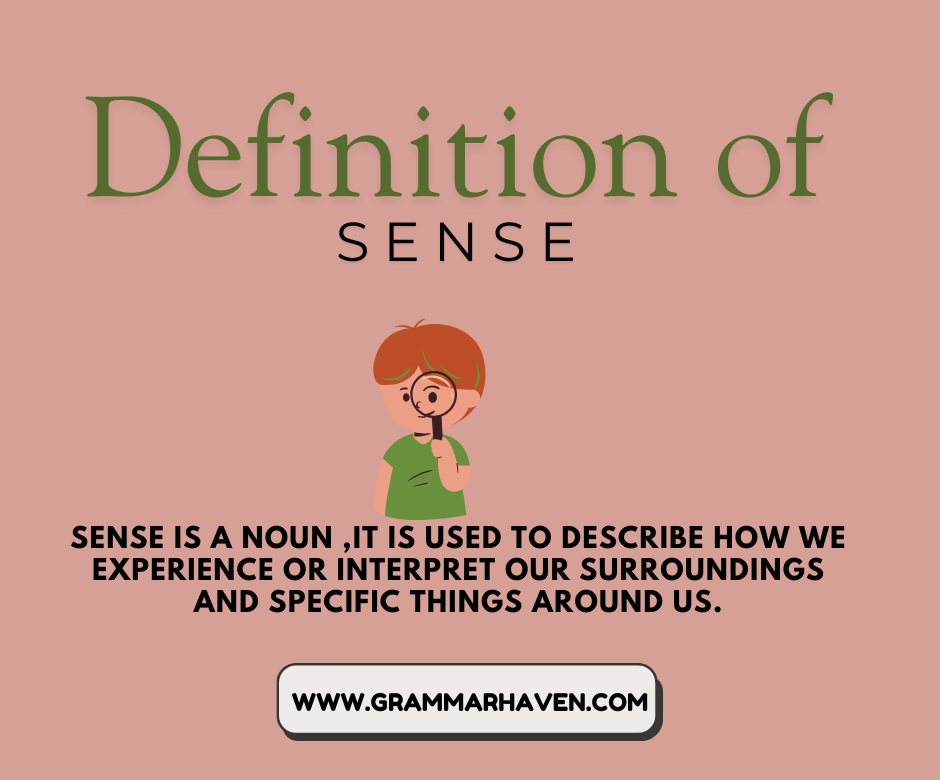
Are sense, since, and cents homonyms, or close to it?
As for pronunciation, they’re considered homophones (Words that sound the same but have different meanings and spellings) and all sound like senn-se but I know some people say “since” and give a slight tweak to the “I” sound so it’s sin-se.since has a slightly different pronunciation in some accents, so it may not always be considered a perfect homophone of the other two.
Here’s how they differ:
- Sense (noun/verb) – Understanding or perception (e.g., He has a good sense of humor).
- Since (conjunction/preposition/adverb) – Refers to time or reason (e.g., we have lived here since 2010).
- Cents (noun) – Plural of “cent,” a unit of currency (e.g., The sweet candy costs 50 cents).
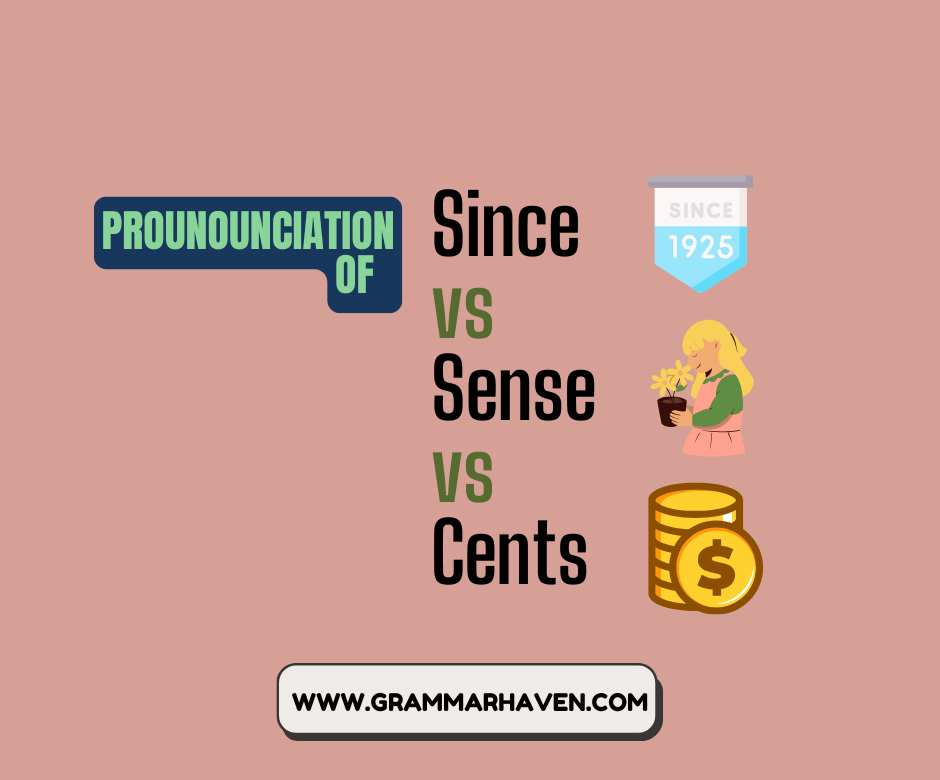
Difference Between Homophones and Heterophones :
Homophones
- Words that sound the same but have different meanings and spellings.
- Example:
- Sense, since, and cents (they sound alike but mean different things).
- There, their, and they’re
Heterophones
- Words that are spelled the same but have different pronunciations and meanings.
- Example:
Lead (to guide) vs. Lead (a type of metal).
Tear (to rip) vs. Tear (a drop from the eye).
Difference Between “Since” vs “Sense”
These words sound the same but have different meanings and spellings, making them heterographs. “Since” typically deals with time or causes, while “sense” connects to perception or understanding. Despite sounding similar, their functions in sentences are quite different.
“Since” as a Time Traveler (or Reason Giver):
“Since” acts as a time marker that points to when something started in the past and continues to the present. You can say that it acts like a time machine that takes you back to that moment. For example: “I’ve lived in this town since 2015.“
“Since” also introduces reasons, acting like a bridge between cause and effect. In some examples you can replace it with “because”. For example: “Since it’s raining, I’ll take my umbrella.“ This essentially means “Because it’s raining, I’ll take my umbrella.“
“Sense” as Your Internal Compass:
While “since” handles time and reasons, “sense” focuses on understanding and perception. It refers to your five senses (sight, smell, taste, touch, and hearing) that help you experience the world. It can also mean a feeling, intuition, or the meaning of words. For example: “This movie plot doesn’t make sense.”
| Feature | Since | Sense |
| Part of Speech | Preposition, Conjunction, Adverb | Noun, Verb |
| Meaning | Time (starting point) or Reason/Cause | Understanding, Perception, Feeling, Meaning |
| Function | Marks a starting point in the past, introduces a reason | Relates to senses (sight, smell, taste, touch, hearing), feelings, intuition, or meaning of words/phrases |
| Usage | Used to indicate time or causation | Used to describe perception, feeling, or understanding |
Putting it into Practice: Makes Sense or Since?
Now as we have learned in this guide, correct usage of since vs sense ,now we can tackle a common phrase that causes confusion: “makes sense or since“?
If you want to say something is logical or understandable ,the correct phrase is “makes sense“. This is because “sense” refers to meaning or understanding. For example: “After reading the instructions twice, the assembly process finally makes sense. The phrase “makes since” is incorrect. “Since” is about time or reasons, not about logic or understanding.
Remember that “that makes sense” is correct when you understand something, while “that makes since” is never correct. Similarly, “does that make sense” is the proper way to ask if someone understands you.
When in doubt, remember that “makes sense” is about understanding, while “since” introduces time or reasons.
Bonus Tip:
If you’re unsure which word to use, try this simple test: replace “since” with “because” or “sense” with “meaning” in your sentence. If the replacement keeps your intended meaning, you’ve likely chosen the right word! But always check the specific context to make sure the word fits properly.
Examples in Context
Since (Time and Reason):
- “Since early morning, they’ve been searching for the missing cat.” (Time – Shows when the search started)
- “Since you forgot your wallet, I’ll pay for lunch today.” (Reason – Shows why the speaker will pay)
- “We haven’t seen each other since high school graduation.” (Time – Connects past to present)
- “Since moving to the countryside, I’ve felt much more relaxed.” (Time – Shows when the feeling started)
- “Since the storm, the power has been out.” (Reason – Links a past event to a current situation)
Sense (Understandings and Feelings):
- “The directions don’t make much sense.” (Understanding – Shows lack of clarity)
- “I get a strange sense about this job offer.” (Feeling – Shows intuition)
- “What sense does it make to drive when we could walk?” (Meaning – Questions logic)
- “There’s a strong sense of teamwork in our office.” (Feeling – Describes atmosphere)
- “The sense of that phrase is quite different in Spanish.” (Meaning – Refers to significance)
Words You Can Use in Place of “Since” and “Sense”
Since
When indicating time:
- From: “I’ve been working here from last summer.”
- After: “I felt better after taking the medicine.”
- Following: “Following the concert, we went for dinner.”
When indicating reason:
- Because: “She stayed home because she was sick.”
- As: “As it was snowing, school was canceled.”
- Due to: “The flight was postponed due to bad weather.”
Sense
When referring to perception or feeling:
- Sensation: “He felt a strange sensation in his arm.”
- Perception: “Her perception of the event was different from mine.”
- Awareness: “There’s growing awareness of this issue.”
- Intuition: “His intuition told him something was wrong.”
When referring to meaning or understanding:
- Meaning: “The meaning of the poem wasn’t clear.”
- Significance: “The significance of his words wasn’t lost on anyone.”
- Understanding: “She has a deep understanding of chemistry.”
- Interpretation: “My interpretation of the data differs from yours.”
Origins of “Since” and “Sense”
“Since” has a rich history dating back to Old English “siþþan,” which meant “after, since.” This word combined two Old English elements: “siþ” (meaning “journey, later, afterwards”) and “þan” (a form of “þon,” meaning “then, when”). Over time, “siþþan” changed to Middle English forms like “sithen,” “sithence,” and “sithens,” before becoming our modern “since” around the 16th century.
“Sense” comes from the Latin word “sensus,” which meant “perception, feeling, sense.” “Sensus” came from the verb “sentire,” meaning “to feel, perceive.” Latin had a strong influence on English vocabulary, and “sensus” entered Middle English as “sens” or “sense” around the 14th century.
Both words have been in English for centuries but have maintained their distinct meanings despite sounding similar when spoken.
Conclusion
Now you know the difference between “since vs sense“. While they might sound the same, they serve very different purposes in writing. “Since” works like a time machine, marking when things started or introducing reasons. “Sense” is your guide to understanding, feelings, and meaning. With these tips in mind, you’ll avoid mixing them up and write more clearly.
FAQs
Which is correct sence or sense?
“Sense” is correct. “Sence” is a misspelling that should be avoided in proper writing.
How do you use sense?
Sense refers to perception or understanding. We talk about making sense, common sense, or sensory experiences.
When should I use since?
Use “since” when indicating time (since yesterday) or giving a reason (since you asked).
Does it make sense or since?
“Make sense” is correct when referring to understanding or logic. “Since” refers to time or reasons.

